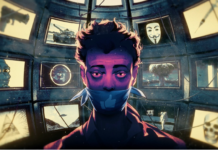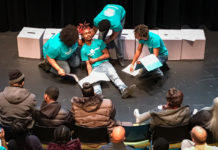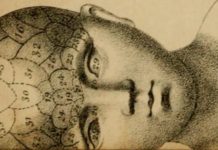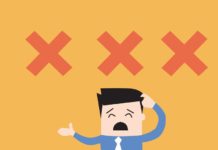Yearly Archives: 2019
Responding to “The Case Against AOT”—Next Steps for Change
Many will direct their efforts toward repealing involuntary outpatient commitment statutes in their states—an extremely challenging and uphill battle—or reforming abuses. Their arguments will be strengthened immensely by the findings in MIA's report. What follows are suggestions about what kinds of interventions to consider.
NC Jail Staff Accused of Beating ‘Mentally Ill’ Veteran to Death
From The Appeal: Officers responded to the man's anger by repeatedly pepper spraying him, kicking him, stomping on him, punching him, and shocking him.
When Attempts to Localize Global Mental Health Miss the Mark
Researchers find that efforts to integrate the Cambodian idiom baksbat (broken courage) into local mental health care may have served to pathologize adaptive responding.
Going Off Antidepressants – Take Time to Quit
From Radio New Zealand: "It’s only when you go down into much smaller doses that...the withdrawal symptoms really start to become more evident and more severe."
Open Dialogue and a Human Rights Approach to Mental Health Care
Analysis suggests that Open Dialogue aligns with human rights-based perspectives on mental health care.
The Chemical Imbalance Theory: Dr. Pies Returns, Again
Psychiatrist Ronald Pies published a recent piece in the Psychiatric Times titled "Debunking the Two Chemical Imbalance Myths, Again." The subtitle: "A little learning is a dangerous thing." And indeed it is. But not nearly as dangerous as a psychiatrist with a head full of spurious diagnoses and a ready prescription pad.
The Trauma Floor: The Secret Lives of Facebook Moderators in America
From The Verge: “I don’t think it’s possible to do the job and not come out of it with some acute stress disorder or PTSD.”
The Light in the Dark
Darkness began to consume my life, both literally and metaphorically. My surroundings and even my own thoughts would become distorted into something terrifying. As the nights droned on, shadows in my dorm room would contort themselves into threatening figures. The whispers continued to grow, overcoming the thoughts in my head.
What Separation From Parents Does to Children: ‘The Effect Is Catastrophic’
From The Washington Post: The reason child-parent separation has such devastating effects is because it attacks one of the most fundamental and critical bonds in human biology.
Young People Are Using Musical Theater to Heal Their Trauma
From NationSwell: Chicago's Storycatchers Theatre helps justice-involved youth find their voices and resolve old traumas by making them the stars of the show.
U.S. Politicians Now “Trauma Informed”—Should We Be Hopeful?
It is good that the general public is finally hearing about the ACE Study, but I do not count on U.S. politicians to address the core implications of the ACE findings—the need to re-make U.S. society so as to (1) prevent preventable adverse childhood experiences, and (2) create a society in which healing from trauma can more easily occur.
Congress Holds Historic Hearing on Childhood Trauma
On July 11, the House Committee on Oversight and Reform held its first-ever hearing on childhood trauma, featuring emotional testimony from survivor witnesses, as well as a number of prominent public health experts and government officials.
An Open Letter to Howard Stern, the “Poster Boy for Psychotherapy”
Dear Howard Stern: What may come as a surprise to you is that the quality of talk therapy that was available to you—time-intensive, in-depth sharing of feelings, exploring childhood traumas, examining and changing difficult personality traits—is steadily becoming unavailable to the average American.
‘Freedom Is Therapeutic’: Trieste’s Mental Health ‘Revolution’
From the BBC/People Fixing the World: In 1978, Trieste led a ‘revolution’ in Italian mental health care by closing its asylums and ending the restraint of patients. Today the city is recognized by the WHO for its pioneering work.
Teacher Perspectives on Student ADHD Medication Use
Qualitative study examines patterns in teacher attitudes and knowledge related to medication of students for ADHD-type behaviors.
When Researchers Listen to People Who Hear Voices
From Yale Medicine Magazine: The line between 'mental illness' and genius has long been known to be razor-thin. Clairaudients, or psychics who hear voices, are helping clarify the connection.
Learning a Different Way: An Interview with Maori Psychiatrist Diana Kopua
MIA’s Ayurdhi Dhar interviews Diana Kopua about the Mahi a Atua approach, the global mental health movement, and the importance of language and narratives in how we understand our world and ease our suffering.
Stigma and Discrimination Linked to the Biomedical Model of Mental Health
Study traces the history of biomedical explanations of psychopathology to show how stigma and discrimination are reinforced when other possible explanations are ignored.
End Kendra’s Law Now: Racist, Classist Practices in Involuntary Psychiatry Persist
In addition to involuntary outpatient commitment being an assault on and targeting people who are living in or near poverty, the statistics demonstrate racial disparities in the application of involuntary outpatient commitment.
Is Medicine Overrated?
From Scientific American: Given medicine’s poor record, physicians should prescribe and patients consume far fewer medications, a new book argues.
Positive Antidepressant Study “Misleading” and “Erroneous”
An analysis of last year’s positive finding in The Lancet about antidepressant efficacy shows errors, obfuscations, and misrepresentations.
Andrew Rich: “I Didn’t Know Stuff Like This Existed”
In this second part of MIA’s report on compulsory outpatient treatment orders, Michael Simonson tells of how he came to report on this topic, the results from MIA’s survey of people who have experienced such forced treatment, his interviews with several of the survey respondents, and more on Andrew Rich’s life.
Why Don’t Prescribers Discuss Antidepressant Discontinuation?
In a new study, prescribers identify barriers to discussing antidepressant discontinuation with patients.
Twenty Years After Kendra’s Law: The Case Against AOT
The proponents of compulsory outpatient treatment claim that it leads to better outcomes for the recipients, and protects society from violent acts by the "seriously mentally ill." Those claims are belied by history, science, and a critical review of the relevant research.
Why I Take Drugs and Don’t Plan to Stop
If the drugs I am prescribed did not benefit me overall, believe me, I would no more take them willingly than I would swallow rat poison. I went through many attempts to wean myself, but invariably the loss of my ability to do art brought me to the place where I went back on them. I remain on them and I want to remain on them.

































